Rod is either describing the seething Montana closet-case cowboy drama with the cut-hand anthrax climax or the red Saab, cigarette-smoking, Justin Chang-worshipped Japanese grief monkey movie.
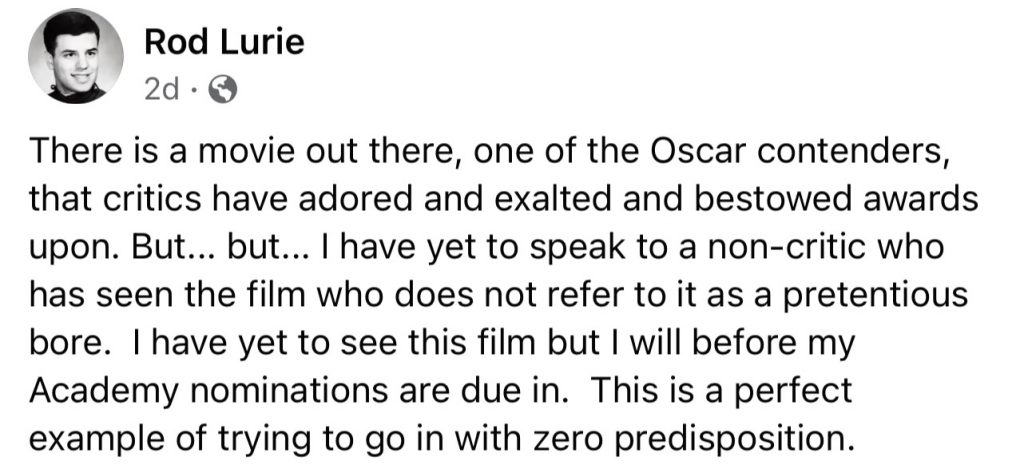
Rod is either describing the seething Montana closet-case cowboy drama with the cut-hand anthrax climax or the red Saab, cigarette-smoking, Justin Chang-worshipped Japanese grief monkey movie.

“…and a large left contingent that refuses to call them out for this. [We’re] in this ridiculous new era of mind-numbing partisanship where if I keep it real about the nonsense in the Democratic party, it makes me an instant hero to Republicans.
“The same thing happened in reverse to Darth Vader‘s daughter, Liz Cheney, who is now a hero to liberals simply because she recognizes that Biden did not steal the last election….simply acknowledging reality is now seen as a profile in courage.
“When normal people read that San Francisco has basically legalized shoplifting, they think Democrats have gone nuts. It’s not my fault that that the party of FDR and JFK is turning into the party of LOL and WTF….making Mr. Potato Head gender-neutral and now an [Apple] emoji for pregnant men.”
Wanna be starting’ somethin’? We need a third major singer-songwriter to dump Spotify. That’ll make it easier for the fourth snd fifth to join the cause.
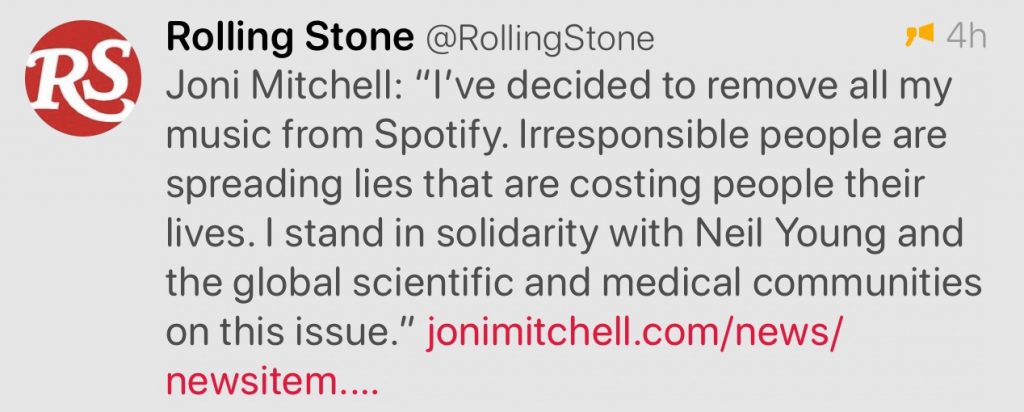

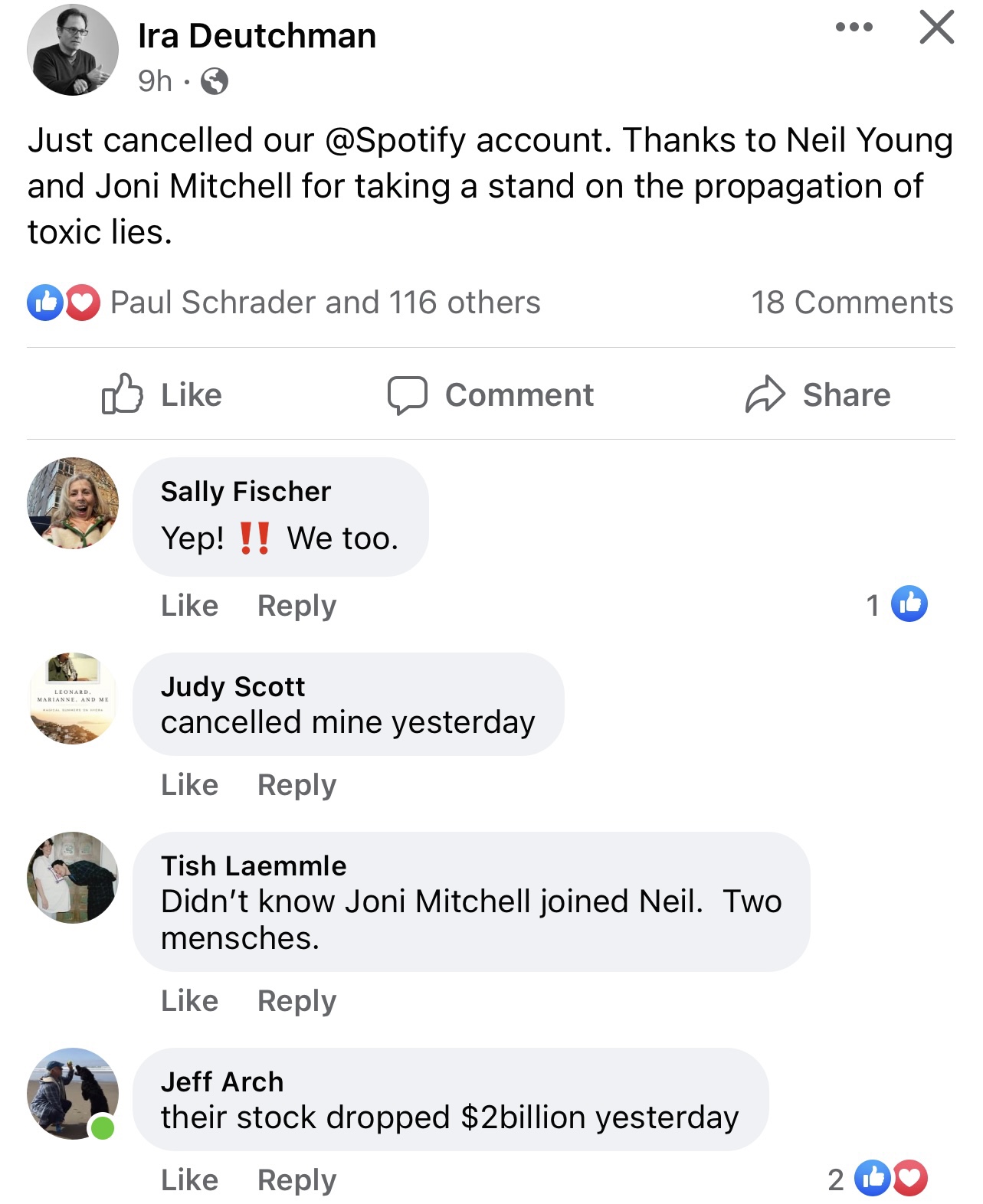
This evening I caught a 35mm projection of Frank Perry’s Play It As It Lays at the Los Feliz branch of the American Cinematheque. Four days ago I said I was very worried that they might show a pink print or one full of scratches. To my great surprise and delight tonight’s print was damn near perfect — clean and smooth, only a few barely noticeable scratches at the end of the reels. Amazing! It was like time-travelling back to ‘72 and watching it a week or two after opening day. Plus good sound. Apologies to A.C. management for my previous lack of faith.
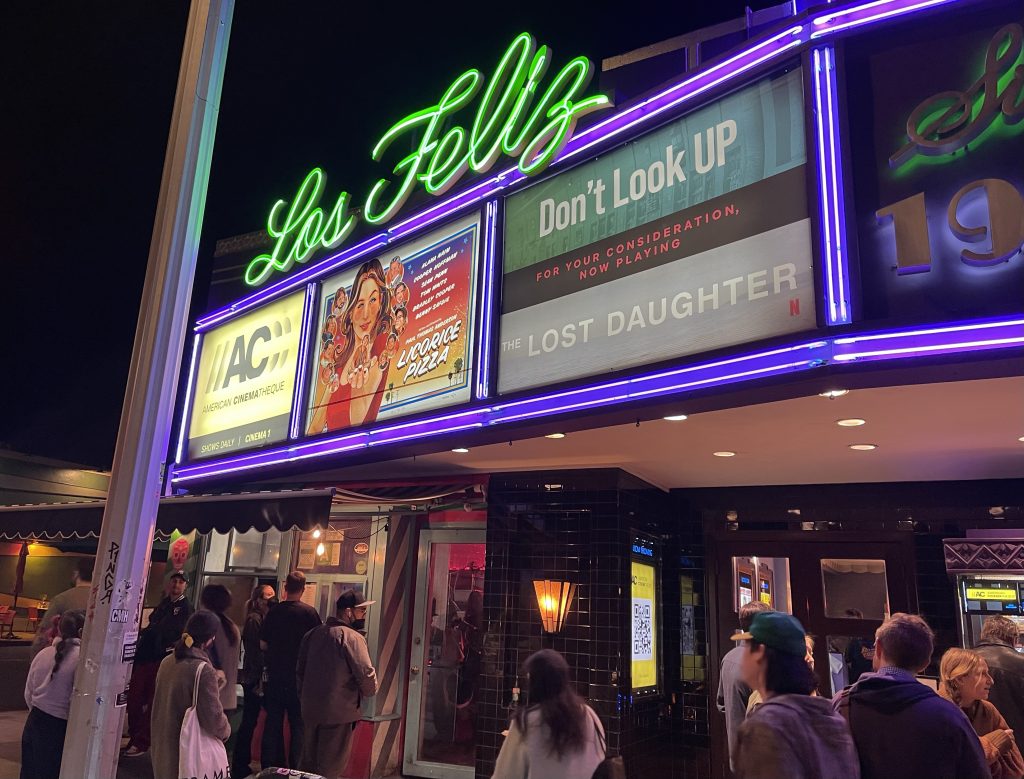
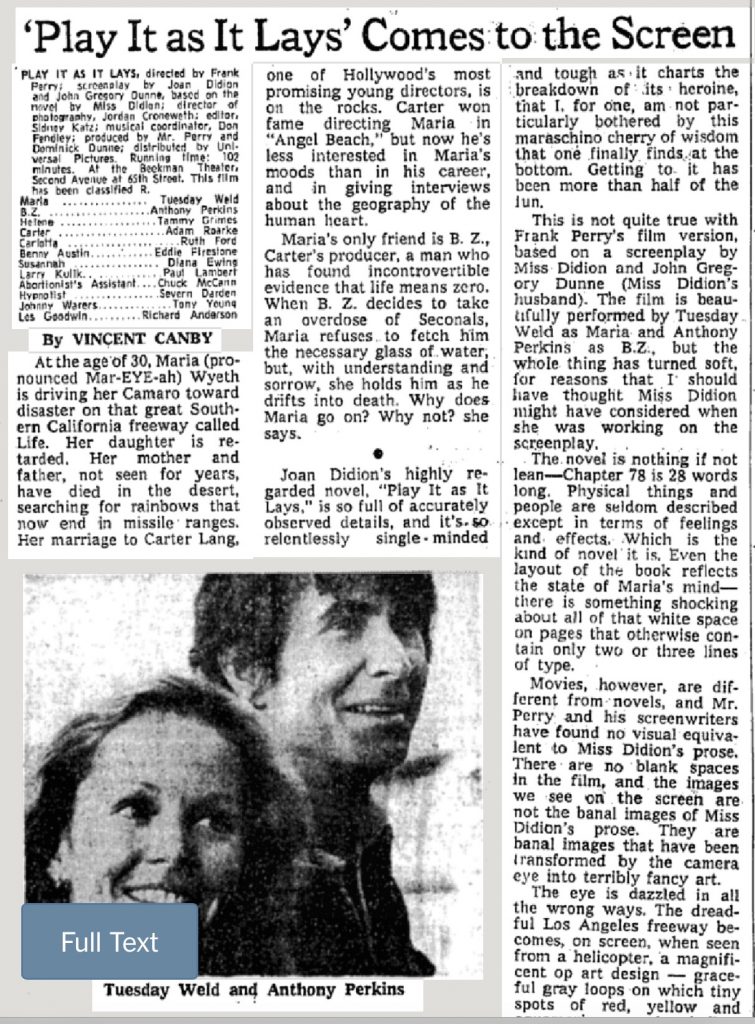
The basic idea here (and it’s not mine!) is that Shelley Winters‘ more-or-less innocent victim character in A Place In The Sun (’51) is irksome if not profoundly irritating, and that…well, read Mr. Ormsby‘s reaction.
Question to HE community: What other significant characters whose death or removal have you found yourself wishing for?
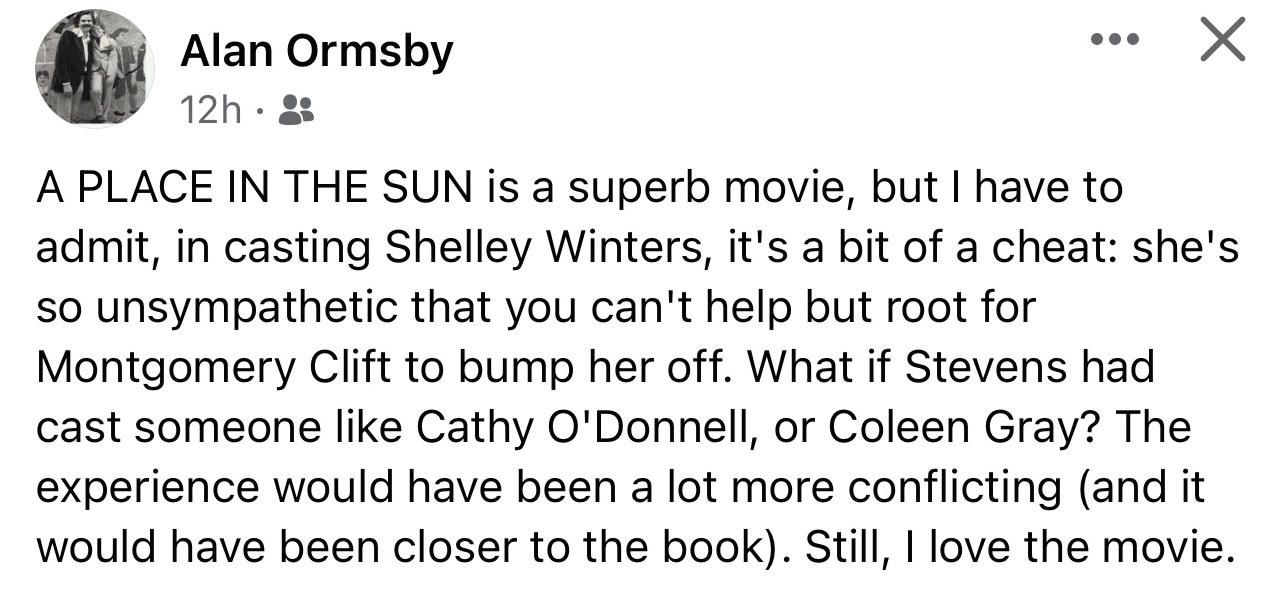
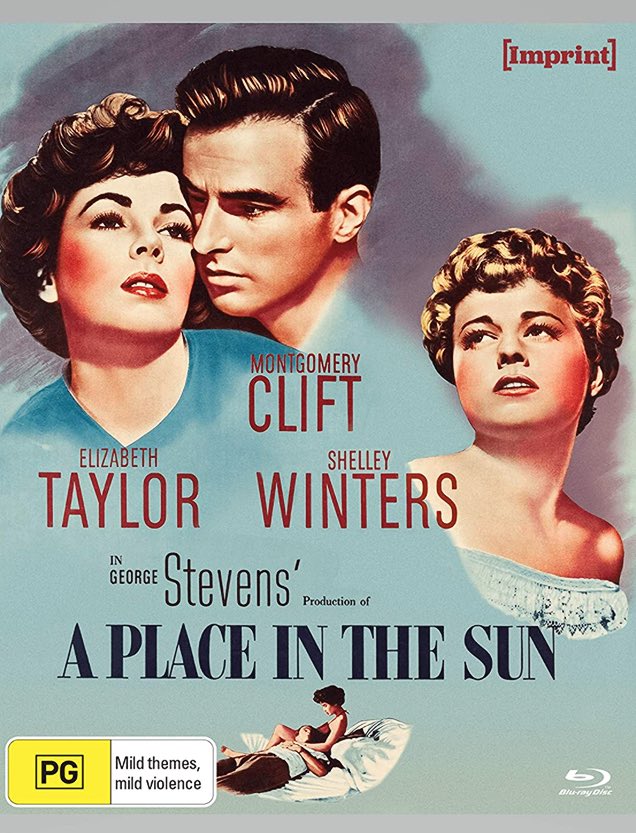
Official Showtime copy: “Super-Pumped is about “the roller-coaster ride of Uber, one of Silicon Valley’s most successful and most destructive companies, told from the perspective of the company’s CEO Travis Kalanick, who is ultimately ousted in a boardroom coup after tense internal and external battles that ripple with unpredictable consequences.”
If this was a one-off, Super-Pumped might be analogous to The Social Network — another story of a smart but obnoxious mover-and-shaker who launches an enormously successful company with a new idea. But no — it’s an anthology series from Brian Koppelman and David Levien, based on the same-titled 2019 book by Mike Isaac.
The strong cast includes Joseph Gordon-Levitt, Kyle Chandler, Kerry Bishé, Babak Tafti, Mousa Hussein Kraish, Hank Azaria, Elisabeth Shue and Uma Thurman.
The source of these Sean Penn quotes from (a) an interview gave yesterday to The Independent‘s Annabel Nugent and (b) a 1.14.22 interview he did with England’s inews.
During her ascendant, hot-rocket period (’85 to ’92), Sinead O’Connor was one of the greatest rockers ever — a ballsy poet, provocateur, wailer, screecher, torch carrier…a woman with a voice that mixed exquisite style and control with primal pain. She was / is magnificent. I still listen to The Lion and the Cobra and I Do Not Want What I Haven’t Got, and I still love “Madinka”, “Jerusalem”, “Troy” and “Nothing Compares 2 U”…all of it, the primal energy, the shifting pitch of her voice, the Irish punk banshee thing…wow.
It doesn’t matter that this happened 30 to 35 years ago, and that O’Connor has lived a convulsive, ebb-and-flow life ever since…one torrential spew or tussle or throw-down after another…or that she now performs in Muslim robes (having converted two or three years ago)…what matters is that from age 19 through 26, or for roughly eight years, O’Connor was a blazing art-rocker of the first order and an unstoppable historic force…like Bob Dylan was between ’61 and the motorcycle accident + Blonde on Blonde crescendo of ’66.
Kathryn Ferguson’s Nothing Compares, a 96-minute doc that I saw late yesterday afternoon, is mainly about O’Connor’s rise, peak and fall over that eight-year period. (The last 30 years are acknowledged but mainly in the credit crawl.) Sinead’s climactic crisis, of course, was that infamous mass rejection that followed her defiant “tearing up the Pope photo” performance on a 10.3.92 airing of Saturday Night Live, which then was followed by the booing she received at a Dylan 30th Anniversary tribute concert in Madison Square Garden about two weeks later.
She never recovered the magic mojo.
Ferguson’s doc says three important things. One, Sinead’s fiery temperament came from a horribly abusive childhood, principally due to her monstrous mother (who died in a car crash in ’86), and as a musician she radiated such a bruised, scarred and beat-to-hell psychology that…well, blame her awful mom and her shitty dad also. Two, her peak period was magnificent, and if nothing else the doc will remind you of this. Three, Sinead was right about the Pope, or rather the institutional abuse of children at the hands of pedophile priests, and so she was way ahead of her time. (The Boston Globe‘s Spotlight team made a huge splash with their ’02 report about the Catholic church hiding the criminal misdeeds of priests abusing Boston-area children, and of course Tom McCarthy‘s Spotlight came along in ’15.)
O’Connor has soldiered on and kept plugging for the last 30 years, and obviously there’s an intrepid aspect and bravery in that, and yet Ferguson ignores the blow-by-blow — the lurching, shifting, sporadic turbulence that has marked O’Connor’s life ever since (not including the devastating suicide of her son Shane earlier this month, which happened well after the film had wrapped).
Side observation #1: The 55-year-old O’Connor doesn’t appear in the doc as an on-camera talking head, although she narrates a good portion of it. I have to say that the deep, guttural sound of her present-day voice — honestly? — sounds like a dude’s. Booze, cigarettes, whatever…the speaking voice she had in interviews from the late ’80s and early ’90s is gone.
Side observation #2: The Prince estate refused to allow Ferguson to use “Nothing Compares 2 U”, as the song was authored by Prince and owned by the estate. What a dick move! A low-budget doc that pays devotional tribute to O’Connor and the Prince estate refuses to allow her most famous recording to be heard? Jesus…this has to be one of the lowest scumbag moves in rock-music history.
Side observation #3: Who were those assholes who booed O’Connor at a Dylan concert, of all things? Her manner of conveyance was overly blunt, agreed, and she probably should have toned it down, but c’mon, her Pope protest was about protecting children from abuse and pain and thousands of Dylan fans fucking booed her?
Bad Day at Black Rock (‘55) is a good, strong John Sturges film except for one thing. Nobody in that tiny little desert backwater was doing Anne Francis?
It makes no sense that Francis would even BE there, as a woman this fetching would never settle for a grim existence in a dinky little ghost town like this. Life is short — you have to go for the gusto and the goodies.
But even if you accept that Francis’s “Liz Wirth” would be content to live in this dusty hell hole, human nature dictates that someone in that miserable hamlet would’ve stepped up to the plate and said to her, “I’m your man and we can make beautiful music together and have all kinds of nice plants on the patio.”
Someone always steps up and seals the deal in these situations. It happened in each and every cave settlement in prehistoric times, in every village in ancient Judea, in every clay-hut, grass-roof settlement in medieval Europe. Not that a knockout like Anne Francis would’ve rubbed shoulders with everyday European villagers or Judeans or cave-dwellers.
If I was Spencer Tracy, I would’ve sized things up and sauntered over to Robert Ryan or Lee Marvin or Walter Brennan or Wirth’s brother Pete, who works at the hotel, and said, “Are you telling me that no one’s giving Anne Francis the high, hard one, or at least trying to? Because that really goes against basic human nature.“
According to a recently-deleted CNN report, President Biden allegedly told Ukranian president Zellensky that a Russian invasion is “imminent”…virtually certain come February…and that Kiev could be “sacked.” There’s a suspicion that “journalists were covertly fed Russian intelligence disinformation, so [CNN] removed it once they realized the mistake.”
BREAKING: We have recovered the Ukraine call report that @JakeTapper and CNN just deleted
Please DO NOT RT this as they do not want anyone to see it! pic.twitter.com/vV67Jc1p7i
— Jack Posobiec 🇺🇸 (@JackPosobiec) January 28, 2022
A bit less than 30 years ago I profiled Bridget Fonda for the N.Y. Times. The piece, largely based on my visiting the Arizona set of Bodies, Rest and Motion and sharing a nice dinner with her, ran in August ‘92. I liked Bridget a lot; I even felt what you might call a semi-profound kinship with her.
And so, three decades on, I have no comment about the alleged, recently snapped photos of her that have just surfaced. No comment except I literally cried out when I saw them. We all get older but…well, bear with me. Sorry but I’m startled, partly because she’s the niece of Jane Fonda and there’s a certain image or association that comes with that.
That said, I hope Bridget is happy. Maybe the Mail made a mistake. Saying no more.
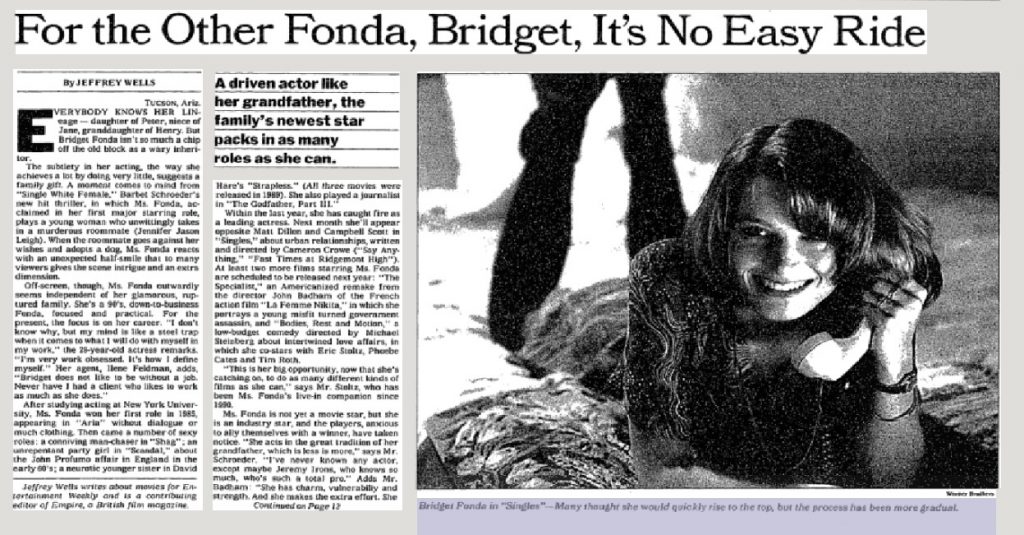
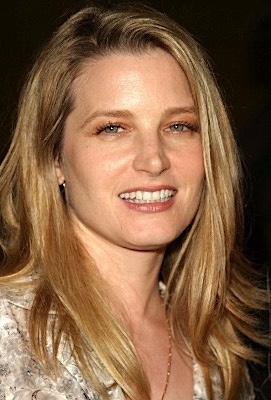
But of course, Joe Biden‘s condescending, less-than-supportive attitude towards Anita Hill during the Clarence Thomas confirmation hearings is an episode he won’t want to revive by nominating her to fill Justice Breyer‘s seat on the Supreme Court.
Filed by N.Y. Times reporters Sheryl Gay Stolberg and Carl Hulse on 4.25.19: “On Thursday, the first day of [Biden’s] presidential campaign, his camp disclosed the call, saying[said that] the the former vice president had shared with Anita Hill “his regret for what she endured” 28 years ago, when, as the chairman of the Senate Judiciary Committee, he presided over the confirmation hearings in which she accused Clarence Thomas, President George Bush’s nominee to the Supreme Court, of sexual harassment.
“But Ms. Hill says the call from Mr. Biden left her feeling deeply unsatisfied.
“In a lengthy telephone interview on Wednesday, she declined to characterize Mr. Biden’s words to her as an apology and said she was not convinced that he has taken full responsibility for his conduct at the hearings — or for the harm he caused other victims of sexual harassment and gender violence.”
I think Jimmy Kimmel’s suggestion that Anita Hill should be nominated for SCOTUS is perfectly brilliant! 💪🏽💙 How about you!?! pic.twitter.com/Qc9V5OSbkP
— Michael (@MichaelisNOLA) January 27, 2022